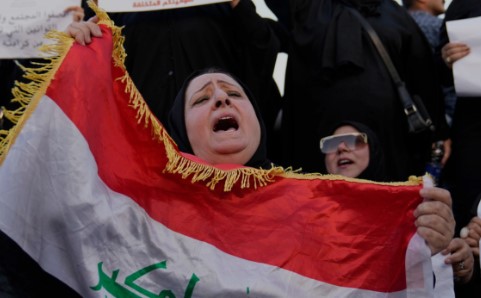A new legislative proposal in Iraq has ignited intense controversy by seeking to lower the legal age of marriage for girls to just 9 years old. The bill, introduced by the Iraq Justice Ministry, aims to amend the existing Personal Status Law, which currently stipulates a minimum marriage age of 18.
The proposed changes would enable marriages for girls as young as 9 and boys as young as 15, shifting the decision-making power between religious authorities and the civil judiciary. Critics fear this move will erode rights related to inheritance, divorce, and child custody, potentially exacerbating issues of child marriage and exploitation.
Human rights organisations, women’s advocacy groups, and civil society activists have condemned the bill, warning that it could severely impact young girls’ education, health, and overall well-being. They highlight that child marriage often leads to higher dropout rates, early pregnancies, and increased vulnerability to domestic violence.
UNICEF reports that 28 per cent of girls in Iraq are already married before reaching 18, highlighting the gravity of the proposed changes. “Passing this law would indicate a regression rather than progress,” asserted Sarah Sanbar, a researcher at Human Rights Watch or HRW.
Amal Kabashi from the Iraq Women’s Network criticised the bill as a means of reinforcing male dominance over family matters in an already conservative society, arguing that it would undermine women’s rights.
Initially withdrawn in late July due to significant objections from lawmakers, the bill reappeared on August 4 after gaining backing from influential Shia blocs in the parliament. This legislative shift would reverse the 1959 law that transferred family law jurisdiction from religious figures to the state judiciary, reintroducing religious rules from Shia and Sunni Islam but excluding other sectarian communities in Iraq.
Proponents argue that the bill is intended to harmonise Islamic law and shield young girls from “immoral relationships.” However, opponents contend that this justification is misguided and neglects the severe consequences of child marriage.
By delegating marriage decisions to religious authorities, the amendment threatens to undermine the principle of legal equality in Iraq, according to HRW’s Sanbar. She asserted that such changes could legitimise marriages for girls as young as nine, compromising their futures and well-being.
“It is essential for girls to be in school and playing, not confined to a wedding dress,” Sanbar remarked. The outcome of this legislative proposal remains uncertain, as previous attempts to amend the law have failed.

















